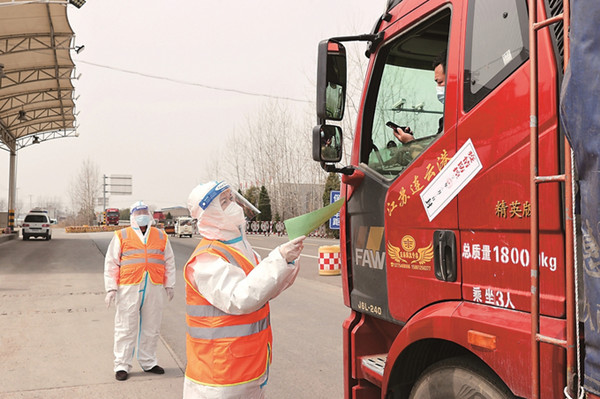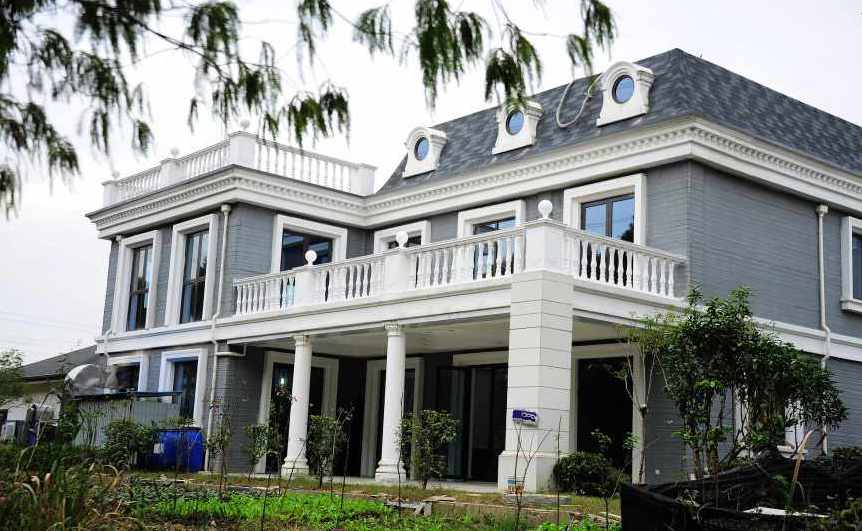As the COVID-19 prevention and control situation remains grim and complicated, Jiangsu has strengthened travel restrictions at public transport venues including railway stations, bus stations, highway entrances and exits.
As of March 17, Jiangsu had closed about 160 expressway entrances and exits to curb the spread of the pandemic. Meanwhile, the province has set up checkpoints at the entrances and exits of highways still opening, inter-city sections of main roads, as well as provincial and city border sections of key rural roads.

Staff are checking health information at a check point on Provincial Highway 242. Photo/Si Wei, Wang Hefan
The Shaxi service area of Shenyang-Haikou Expressway usually has the largest average number of cargo trucks passing through on a daily basis in Jiangsu. The service area’s director Sun Zhihong said drivers are now required to have temperature and health QR code checked along with stringent disinfections of the trucks.
Cai Renjie, Party chief and president of Jiangsu Communications Holding Co Ltd, said a total of 260 checkpoints were established on expressways under the company’s management in the province and more than 17,100 staff members had completed checks of 4.1 million trucks and over 6.03 million passengers by March 16.
Meanwhile, according to the China Railway Shanghai Bureau Group, efforts have been made to adjust the schedule of passenger trains, including suspension of service to some destinations. Train passengers are also required to take staggered seats, and those who cough or feel unfit need to have temperatures taken. Passengers found to have a fever will be immediately isolated and transferred to the care of local COVID-19 response authorities.
The province’s Department of Transport has also tightened measures to regulate ride-hailing services and taxies, such as conducting regular nucleic acid tests and daily random checks on drivers' health QR code.
Contact us at english@jschina.com.cn




















